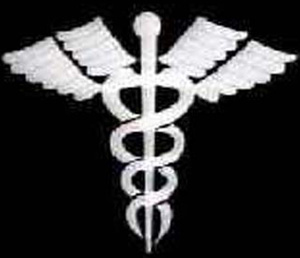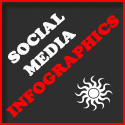Cutting-Edge Ways Social Media Might Change The Health Care Field
 Social media has become an economic driving force as more companies realize the marketing power of tools like Facebook and Twitter. In fact, social media strategy is expected to become one of the fastest-growing professions through 2018, according to the Bureau of Labor Statistics. But social media isn’t just changing the face of the marketing world. Leading experts believe it will have a huge impact in the realm of health care.
Social media has become an economic driving force as more companies realize the marketing power of tools like Facebook and Twitter. In fact, social media strategy is expected to become one of the fastest-growing professions through 2018, according to the Bureau of Labor Statistics. But social media isn’t just changing the face of the marketing world. Leading experts believe it will have a huge impact in the realm of health care.
Today, more than 80 percent of Americans search for health care information online, according to a recent study by the Pew Research Center. Many people are referred to health care resources through friends on their social networks. Here are a few predictions as to how social media will change the health care industry.
1. Collaboration among Health Care Professionals
Social media opens up another avenue for nurses, doctors and surgeons to share ideas, medical journals and experiences with each other. This opens up entire communities among health care professionals and provides the opportunity for exchanges in ideas that will help the industry grow and better serve the needs of patients. Important conversations will move away from isolated areas and include a broader spectrum of ideas and opinions.
2. Patient Networks Improve Health
People diagnosed with serious diseases can feel isolated and have a hard time finding people who share their experience. Yet thanks to social media and online support networks, patients can interact with each other. This is a huge advantage, as research shows maintaining healthy friendships and relationships is a crucial aspect in leading a more healthy life. Furthermore, new advancements in medical research and treatments can be shared through patient networks and forums.
Feeling less alone and isolated will help give patients the strength to fight disease and support others who are doing the same. To see this in action, check out sites like WEGO Health and PatientsLikeMe.
3. A Unified Voice for Better Health Care
Users of social media have become the new watchdogs of industry. Patients and clients can use their power as part of an online social network to advocate better practices and expose abuses of the health care system. Research that once would have taken hours, or even days to track down in a library is readily available and ripe for sharing. This will lead to more educated patients willing to ask tough questions of medical professionals and health care providers.
4. People Trust “Someone Like Me”
Social media attracts people who want to hear from someone they can relate to. Often, in the heath care world, customers and patients feel like they are being talked down to or not taken seriously by authorities in the medical, professional and government realm.
Users want to create a dialog, rather than simply being a recipient of information and giving people the opportunity to tell their story and respond to others makes through social networks will help them feel empowered. With hundreds of millions of users on Facebook and millions on Twitter, these communities get stronger every day.
5. Redefine the Doctor Patient Relationship
Through social media doctors have a chance to reach out and share their expertise with patients and the community as a whole. There are plenty of physicians, nurses and health care professionals who aren’t using Twitter or blogging. Experimenting with this could open up a new avenue of communication, allowing professionals to adapt and meet the needs of patients and customers.
Just like any business, social media may have a huge impact on the health care system. There will be challenges for doctors and other professionals looking for the right way to implement social media, but it’s a learning experience, one with the potential for huge advantages.
Julie Lee is a freelance writer. Her writing focus is usually around college student health issues and advice on subjects like health care administration degrees and programs. You can occasionally find Julie writing and commenting on education and health websites.


I’ll often go to the internet for information. And, I will often look up the pages of my specific healthcare providers as they will highlight a new issue on their page every so often. It helps me to stay on target. A couple of my favorite providers have Facebook pages, too, and check in occasionally.
If you’d like to see a great social network built for those who feel isolated by their disease, you should check out www.CysticLife.org
Very true! Whenever I search for any health care information, I always stumble into forums, blogs, social media, etc. Using the internet to spread useful and helpful information across the globe sometimes helps you save time and money on consultation especially for minor health problems.
You are right, I also search on the net any issues related to health. From clarificiations related to using some medication to tips of how to eat healthy and use the benefits of food for overall health. It’s interesting how social media gets involved in every aspect of our life, and it seems it will have the biggest impact for the health sector.